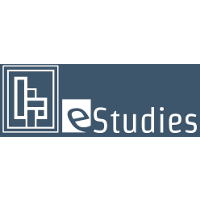How to research a topic
There are several ways to do research for your class presentation, your final paper etc. If you need to get an overview over the time period you are covering, you should start with a textbook. Textbooks cannot be cited in your work, but they will facilitate you getting familiar with a topic. Common textbooks are Mauch/Ortlepp/Heideking’s Geschichte der USA, Eric Foner’s Give Me Liberty, or Mary Beth Norton’s A People and a Nation.
Now you are ready to focus your search. Think of appropriate key words, or names or events you can use as search terms. A good start is the Library of the Department for North American History. There you can find primary sources and secondary literature, as well as journals and databases. Additionally you can research the Cologne University Library. What you can also do in order to get an idea what kind of literature is out there on your topic, is search the extensive catalog of the Library of Congress. Here, you may find titles that do not appear in the USB, but which you can probably get through interlibrary loan. In order to find articles on your topic, you can also search the database America: History and Life.
Another great database to which Cologne has access is JSTOR. Go to USB Köln– Finding and Borrowing – Search for databases and e-media– databases – list of databases (German) – search for JSTOR. It includes a great variety of journals and you will find great articles there.
If you plan on writing a paper using motion pictures as your primary source you should check out the AGuF. The AGuF offers a variety of materials containing documentaries, films and literature on film.
Another great database to which Cologne has access is JSTOR. It includes a great variety of journals and you will find great articles there.
If you plan on writing a paper using motion pictures as your primary source you should check out the AGuF. The AGuF offers a variety of materials containing documentaries, films and literature on film.
Another good way is to check the bibliography and the footnotes of books that you have already identified as crucial for your topic; it is very likely that you will come across other works that are useful for you there. Also, if you check out books from the library, browse the shelf and see what else is there on your topic.
Finally, check out Umberto Eco’s How to Write a Thesis, Kate L. Turabian’s A Manual for Writers of Research Papers, Theses, and Dissertations and Anthony Brundage’s Going to the Sources: A Guide to Historical Research and Writing.
